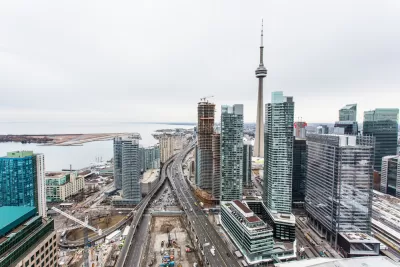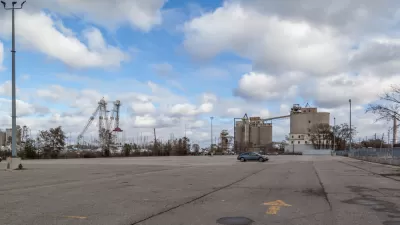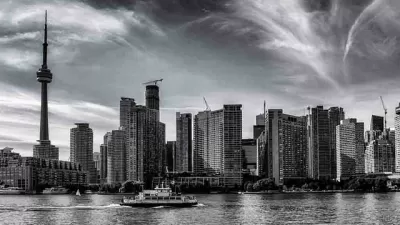The most ambitious example of the almost-mythological "smart city" will be tested in the Quayside district in Toronto as result of a partnership between Sidewalk Labs and Waterfront Toronto.

Last week saw the release of additional details about a partnership between Waterfront Toronto and Sidewalk Labs, a unit of Google's parent company, Alphabet. The announcement event builds fanfare beyond the initial revelation of the partnership earlier in October.
The partnership would "map out a new kind of neighbourhood on Toronto's waterfront that could demonstrate how data-driven technology can improve the quality of city life," according to an article by Alex Bozikovic.
Under the initial terms of the partnership, Sidewalk Labs will invest an initial $50 million into a year-long planning process for a 12-acre district on the Toronto waterfront.
"If the initiative proceeds, it would include at least 3.3 million square feet of residential, office and commercial space, including a new headquarters for Google Canada, in a district that would be a test bed for the combination of technology and urbanism," writes Bozikovic.
Sidewalk Labs also released this week a 220-page document laying out its initial ideas for the project, which Bozikovic summarizes as follows:
Within the area it develops, private cars would be banned; streets would be served by autonomous vehicles and freight robots moving in underground tunnels. Intelligent signals would manage traffic on pedestrian-friendly streets; buildings would be designed to be highly flexible, constructed using modular units that are produced nearby. These would be home to what Sidewalk describes as a "radical" mix of offices, retail, residence and maker spaces, a blend which would challenge existing zoning and building-code regulations.
For additional reading on the technological and urban ambition of the Waterfront Toronto-Sidewalk Labs partnership, see also an article by Emily Badger for The New York Times.
FULL STORY: Google's Sidewalk Labs signs deal for 'smart city' makeover of Toronto's waterfront

Alabama: Trump Terminates Settlements for Black Communities Harmed By Raw Sewage
Trump deemed the landmark civil rights agreement “illegal DEI and environmental justice policy.”

Study: Maui’s Plan to Convert Vacation Rentals to Long-Term Housing Could Cause Nearly $1 Billion Economic Loss
The plan would reduce visitor accommodation by 25% resulting in 1,900 jobs lost.

Planetizen Federal Action Tracker
A weekly monitor of how Trump’s orders and actions are impacting planners and planning in America.

Waymo Gets Permission to Map SF’s Market Street
If allowed to operate on the traffic-restricted street, Waymo’s autonomous taxis would have a leg up over ride-hailing competitors — and counter the city’s efforts to grow bike and pedestrian on the thoroughfare.

Parklet Symposium Highlights the Success of Shared Spaces
Parklets got a boost during the Covid-19 pandemic, when the concept was translated to outdoor dining programs that offered restaurants a lifeline during the shutdown.

Federal Homelessness Agency Places Entire Staff on Leave
The U.S. Interagency Council on Homelessness is the only federal agency dedicated to preventing and ending homelessness.
Urban Design for Planners 1: Software Tools
This six-course series explores essential urban design concepts using open source software and equips planners with the tools they need to participate fully in the urban design process.
Planning for Universal Design
Learn the tools for implementing Universal Design in planning regulations.
Caltrans
Smith Gee Studio
Institute for Housing and Urban Development Studies (IHS)
City of Grandview
Harvard GSD Executive Education
Toledo-Lucas County Plan Commissions
Salt Lake City
NYU Wagner Graduate School of Public Service




























